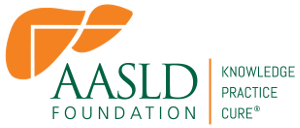Frank J. Tusa Pilot Award for Research in Hepatic Encephalopathy
View the 2026 Request for Applications [PDF].
Overview
The purpose of this award is to support new, highly innovative research ideas that focus on interventions to improve outcomes for persons living with Hepatic Encephalopathy (HE) from liver diseases. Responsive projects will address highly innovative research ideas that have a clear potential to produce high-impact results, but that have little or no preliminary data to successfully compete for funding from other sources. This award is not intended to support ongoing research in the applicant’s laboratory, but rather support new ideas or approaches that have not previously been studied.
-
ELIGIBILITY
-
AWARD DETAILS
-
SELECTION CRITERIA
-
HOW TO APPLY
-
APPLICATION RESOURCES
ELIGIBILITY
In order to be eligible for this award, the applicant must adhere to the following guidelines:
- The applicant must:
- Be an Early-Stage Investigator (as defined by the NIH) up to faculty at or below the rank of Associate Professor/equivalent.
- Be a member of the American Association for the Study of Liver Diseases (AASLD) at the time of award application and maintain active membership for the duration of the award period.
- Be able to devote at least 20% effort to the research project on which this application is based.
- Be sponsored by a public or private non-profit institution accredited in the United States, Canada or Mexico engaged in health care and health-related research. Individuals employed at the NIH, FDA, and CDC are not eligible to apply.
- If the applicant is below the rank of Associate Professor/equivalent, they must have a mentor or co-mentor who is an AASLD member in good standing at the time of application and for the duration of the award period. Mentors are not required for Associate Professor/equivalent level applicants.
- Not hold federal funding (e.g., U, P, R, K, VA Merit, VA CDA) unless they are able to justify the following in their application:
- The project is truly completely distinct and non-overlapping from existing funding.
- The proposed work cannot be completed using existing funds.
- The proposed project must:
- Focus on research on interventions to improve outcomes for persons living with Hepatic Encephalopathy (HE) from liver diseases.
- Be hypothesis based.
- Include only 1-2 aims that can be completed in the one-year award term.
- Include direct clinical interaction (clinical), patient clinical data (outcomes), or patient samples (translational). Proposed research may include pragmatic studies.
- Not be an established project with alternate funding.
- Be conducted at the sponsoring institution within the United States, Canada, or Mexico.
- Application limits:
- There is no restriction on the number of applicants an institution can sponsor each cycle, but only one applicant may be funded per distinct department within each institution in this award category.
- Applicants may only apply for one AASLD Foundation research award per calendar year. Eligible applicants in this category may also apply for the AASLD Foundation Advanced/Transplant Hepatology Award in the same calendar year.
AWARD DETAILS
Award Period: July 1, 2025 – June 30, 2026
Total Award Amount: $50,000
- Award funds of $50,000 will be provided in a single payment upon grant initiation.
- Funds are unrestricted for direct project expenditures, except that equipment acquisition of $5,000 or greater requires prior written approval from AASLD Foundation.
- PIs will receive complimentary registration for The Liver Meeting during their one-year grant term.
- No indirect costs, registration fees, or travel expenses are allowed.
Unexpended funds at the end of the award term must be promptly returned to AASLD Foundation.
SELECTION CRITERIA
AASLD Foundation is soliciting innovative, small-scale exploratory research grant proposals focused interventions to improve outcomes for persons living with Hepatic Encephalopathy (HE) from liver diseases. Funding is meant to allow investigators to test new ideas or methods to gather sufficient data to apply for longer-term grants. Projects must include direct clinical interaction (clinical), patient clinical data (outcomes), or patient samples (translational). Proposed research may include pragmatic studies.
Applicants will be evaluated based upon their background, their commitment to a career in hepatology research, the scientific merit of their research project and the environment in which they will conduct the project.
- Project feasibility, an appropriate environment to conduct the project, and relevant collaborators will strengthen the application.
- Work proposed must clearly be able to be accomplished in one year.
- Highly innovative, high-risk/high-reward projects will be prioritized.
Applications will be reviewed based on the written materials submitted. Incomplete applications and applications that fail to adhere strictly to the instructions (including the submission deadline and page limitations) will not be reviewed. All decisions are final.
HOW TO APPLY
The application deadline for this award is 11:59 pm Eastern time on December 8, 2025. Applications received after the deadline will not be reviewed.
- Download the 2026 RFA and prepare all components listed in the required documents section.
- The forms on pages 6-10 of the RFA must be completed and included as part of your application.
- Type responses where prompted and provide all requested signatures.
- Prepare your final application as a flattened, single PDF (no portfolios). PDFs cannot be locked or have any password protection. Applications that do not meet the requirements, in content or format, will not be reviewed.
- Assemble your application in the order listed in the required documents section of the program RFA.
- Name the PDF file as follows: 2026 TUSA _Last name, first name (Example: 2026 TUSA_Smith, Jane)
- Formatting:
- Include a header at the upper right corner of each page with your name (last name, first name), application year, and program name (2026 Tusa Pilot).
- Use half-inch margins. Do not use lettering smaller than 10 point.
- Adhere to page limits and complete all sections.
- Submit your application at www.liverresearchawards.org. You will be sent an email confirmation that the application was received. If an email confirmation is not received in two (2) business days, please contact awards@aasld.org to confirm receipt.
QUESTIONS
Questions? Contact awards@aasld.org.
Return to Current Funding Opportunities
ACKNOWLEDGEMENTS
The 2026 Frank J. Tusa Pilot Award for Research in Hepatic Encephalopathy program is made possible through a generous contribution from the Tusa Family to establish the Frank J. Tusa Fund.

